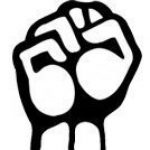 Earlier this month, a group of 21 Eritrean asylum seekers, including a pregnant woman and a child of 14, were trapped between the security fences along the Israeli-Egyptian border. Israel refused to examine their asylum applications and mandated the Israel Defence Forces (IDF) to guard them. IDF soldiers were under orders not to enable them to receive any food or medical assistance for a whole week, and instructed to provide them with ‘as little water as possible’, despite aid being offered by Israeli human rights organisations. The tragedy, in full view of the media, ended with the Prime Minister’s Office ignoring a pending Supreme Court ruling and ordering that the men be returned to Egypt, where they are likely to be captured by organ hunters, and the two women and child be put in an Israeli jail.
Earlier this month, a group of 21 Eritrean asylum seekers, including a pregnant woman and a child of 14, were trapped between the security fences along the Israeli-Egyptian border. Israel refused to examine their asylum applications and mandated the Israel Defence Forces (IDF) to guard them. IDF soldiers were under orders not to enable them to receive any food or medical assistance for a whole week, and instructed to provide them with ‘as little water as possible’, despite aid being offered by Israeli human rights organisations. The tragedy, in full view of the media, ended with the Prime Minister’s Office ignoring a pending Supreme Court ruling and ordering that the men be returned to Egypt, where they are likely to be captured by organ hunters, and the two women and child be put in an Israeli jail.
The trapping of this group followed the rounding up and deportation in June of some 1,000 South Sudanese asylum seekers by the Israeli Immigration Police, The deportees were part of some 60,000 African men and women, mostly from Eritrea and Sudan, who have crossed the still-porous Egypt-Israel border since 2006, many braving kidnappings, torture and rape by their Bedouin traffickers. Unlike Eritrea and Sudan, not ensuring ‘collective protection’ under international conventions, South Sudan, having gained independence on 9 July 2011, was deemed ‘safe’ and able to absorb these asylum seekers, for whom Israel is the nearest democracy to Africa with a first-world economy and as such an obvious destination.
Not surprisingly, these deportations were framed not in economic terms but rather in terms of ‘protecting the Jewish identity of the (Israeli) state’. Between 2011 and 2012 the Israeli government has enacted a series of laws to block people it calls ‘infiltrators’, since in Israel the term ‘asylum seeker’ is contentious – since its establishment in 1948, Israel has given refugee status to only 200 people, even though it was one of the first states to sign the Geneva Convention on Refugees in the wake of the Holocaust. To ensure their deportability, Israel has been constructing an electric fence along its border with Egypt, and building the ‘world’s largest detention facilities’ able to hold up to 30,000 people, enabling ‘infiltrators’ to be detained for three years without trial – the longest such detention period in the western world.
 All of which cannot explain why the luggage belonging to the South Sudanese deportees, including mosquito nets and anti malaria medicines, was left behind. The photograph of the forcibly abandoned suitcases put me in mind of Jewish deportees’ luggage in another era. It took three weeks and a lot of pressure by migrant-support groups for the luggage to be sent to South Sudan. Meanwhile, according to these groups, many deportees caught malaria and several died, including a young baby.
All of which cannot explain why the luggage belonging to the South Sudanese deportees, including mosquito nets and anti malaria medicines, was left behind. The photograph of the forcibly abandoned suitcases put me in mind of Jewish deportees’ luggage in another era. It took three weeks and a lot of pressure by migrant-support groups for the luggage to be sent to South Sudan. Meanwhile, according to these groups, many deportees caught malaria and several died, including a young baby.
Israel is an unusual immigration destination – geared mostly to the ingathering of (Jewish) exiles, awarding automatic citizenship to any person with a Jewish mother or Jewish relatives. Yet, labour shortages led to the importation of labour migrants who, however, were tied to specific employers and became ‘unauthorised’ once they left their employers, leading to mass deportations. Indeed, the recent deportations follow mass deportations of ‘unauthorised’ labour migrants since the early 2000s.
The case of the Eritreans trapped between the security fences is particularly disturbing, as Eritrea is not considered ‘safe’ enough to deport asylum seekers to. However, Israel’s Minister for the Interior Eli Yishai decided to do so all the same, having said bluntly on August 16 2012: ‘Until I can deport them, I’ll lock them up to make their lives miserable… This I can do without anyone’s authorisation’ (YNET). These brave Eritrean asylum seekers are the latest instalment in what is being perceived by the Israeli government intent on maintaining a Jewish majority, while choosing to forget its own recent refugee past.

You must be logged in to post a comment.